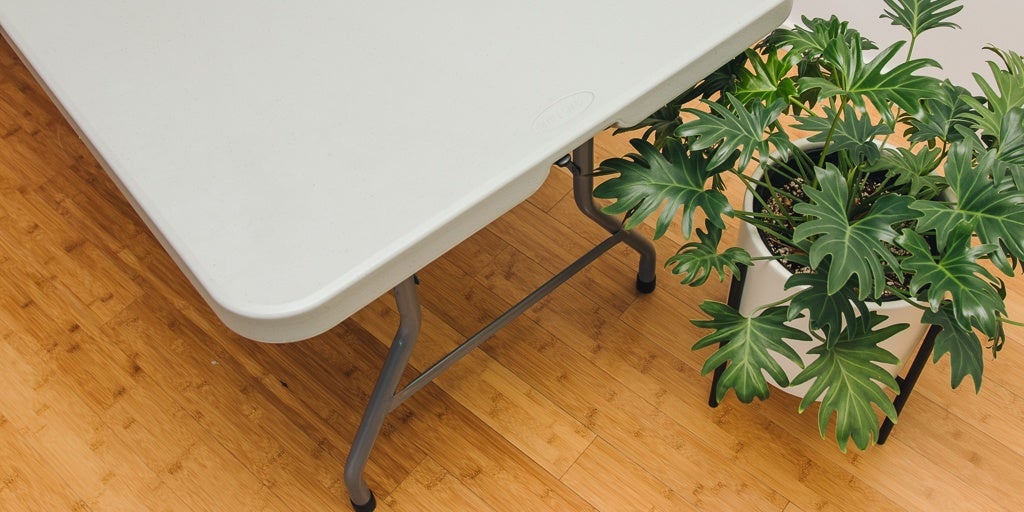Folding tables are versatile pieces of furniture that can provide convenient surfaces for a variety of activities, from outdoor picnics to craft projects. They are easy to store and move, making them a favorite in homes and businesses alike. However, to ensure they last a long time and stay in good condition, proper care and maintenance are essential. Here, we discuss how to best care for your folding table(Spanish: mesas plegables) through regular cleaning, proper storage, dealing with stains and scratches, maintaining the hinges and legs, and protecting the table surface.
Regular Cleaning
Clean After Each Use
Always wipe down your folding table after use. Food spills, dust, and water rings can damage the surface if left unattended. A damp cloth with mild soap works well for most materials, like plastic or laminated tops. Make sure you dry the table thoroughly to prevent moisture from seeping into any seams or joints, which could lead to swelling or rust.
Deep Cleaning for Stubborn Residue
For harder-to-remove substances, like dried paint or adhesive, use a non-abrasive cleaner that won’t damage the tabletop. Scraping tools like plastic putty knives can gently lift off any gunk without scratching the surface. After deep cleaning, apply a mild surface-safe disinfectant to keep your table free from bacteria and odors.
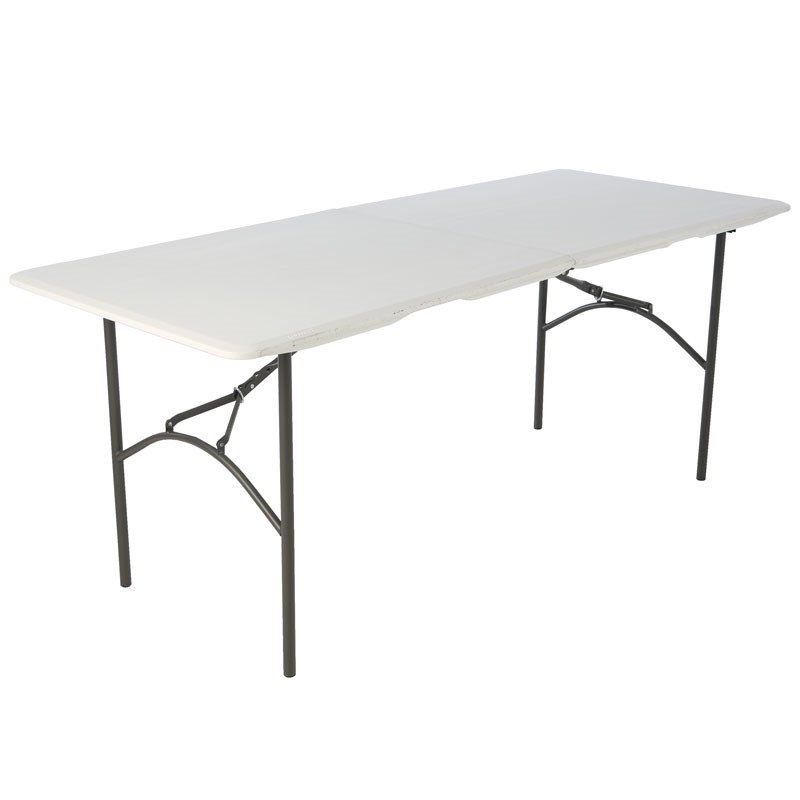
Proper Storage
Ideal Storage Conditions
Store your folding table in a dry, indoor space to protect it from the elements. Extended exposure to rain, sunlight, or humidity can warp the table or fade the finish. If outdoor storage is unavoidable, invest in a waterproof cover that fits snugly around the table to keep it protected.
Smart Positioning Avoids Warping
Even when folded, how you store your table can affect its shape and functionality. Never stack heavy objects on top of a stored folding table, as this can lead to warping or bending. Stand the table upright against a wall or lay it flat on a level surface with nothing on top to maintain its proper form.
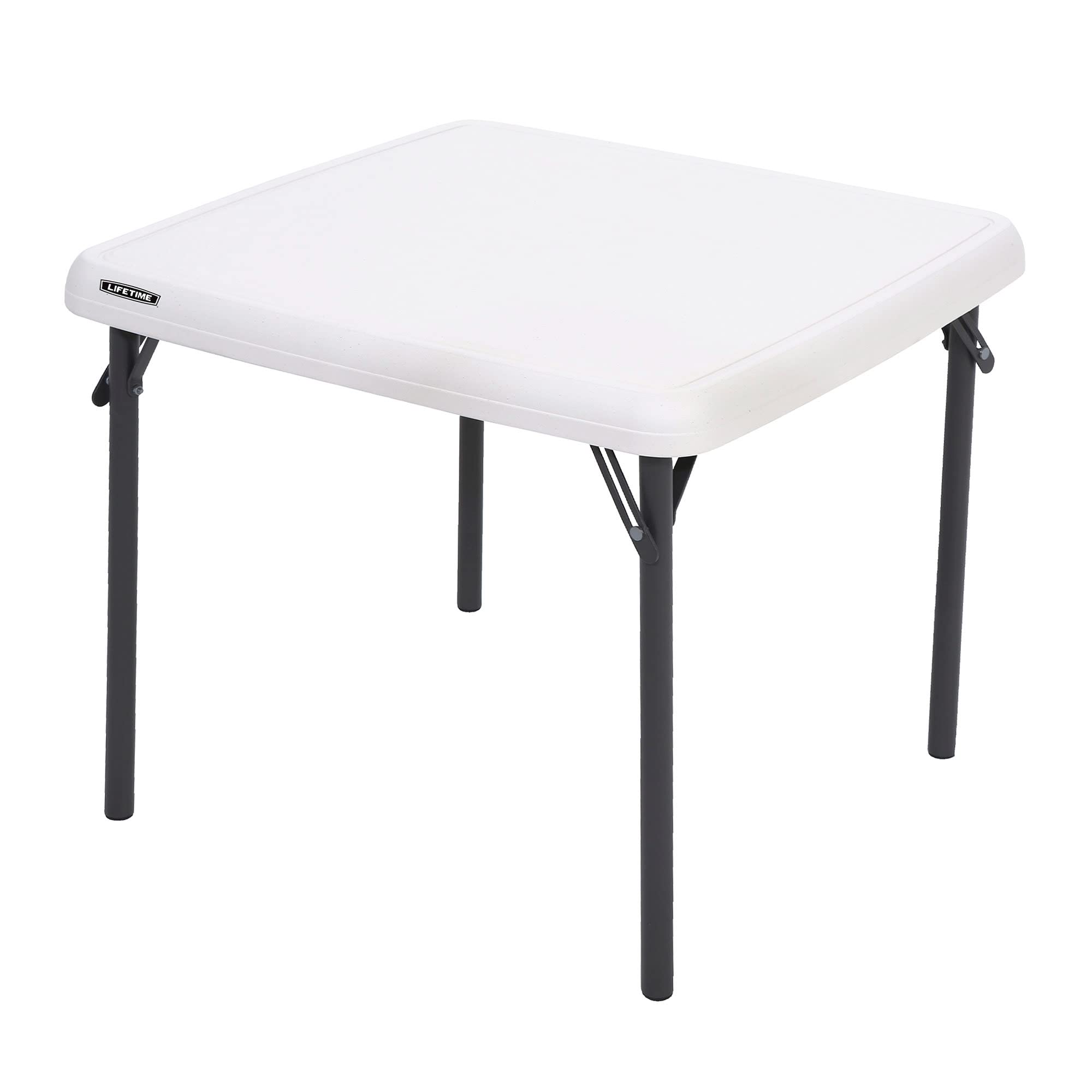
Stains and Scratches
Immediate Attention for Spills
Address stains quickly to prevent permanent damage. For plastic surfaces, rubbing alcohol or a mix of baking soda and water often removes food and drink stains. For metal legs, use a cleaner designed for that specific type of metal to avoid corrosion or discolouration.
Repairing Scratches and Scuffs
Minor scratches can be buffed out using car wax or a similar product on metal or laminate surfaces. For deeper scratches, specially designed fillers or touch-up pens can disguise the damage. Always test a small, inconspicuous area first to ensure the product doesn’t worsen the condition.

Hinges and Legs
Regular Hinge Maintenance
Keep the folding mechanism working smoothly by checking the hinges and screws regularly. Tighten any loose screws, and oil the hinges if they start to stick or squeak. A silicone-based lubricant is best for this job, as oil-based products may attract dirt and grime.
Look After the Legs
Examine the legs for signs of damage or wear and tear. If the rubber feet that protect floors get worn down, replace them to avoid scratching tiles or wood flooring. If the legs themselves become bent or damaged, consult the manufacturer for replacement parts rather than trying to fix them yourself.
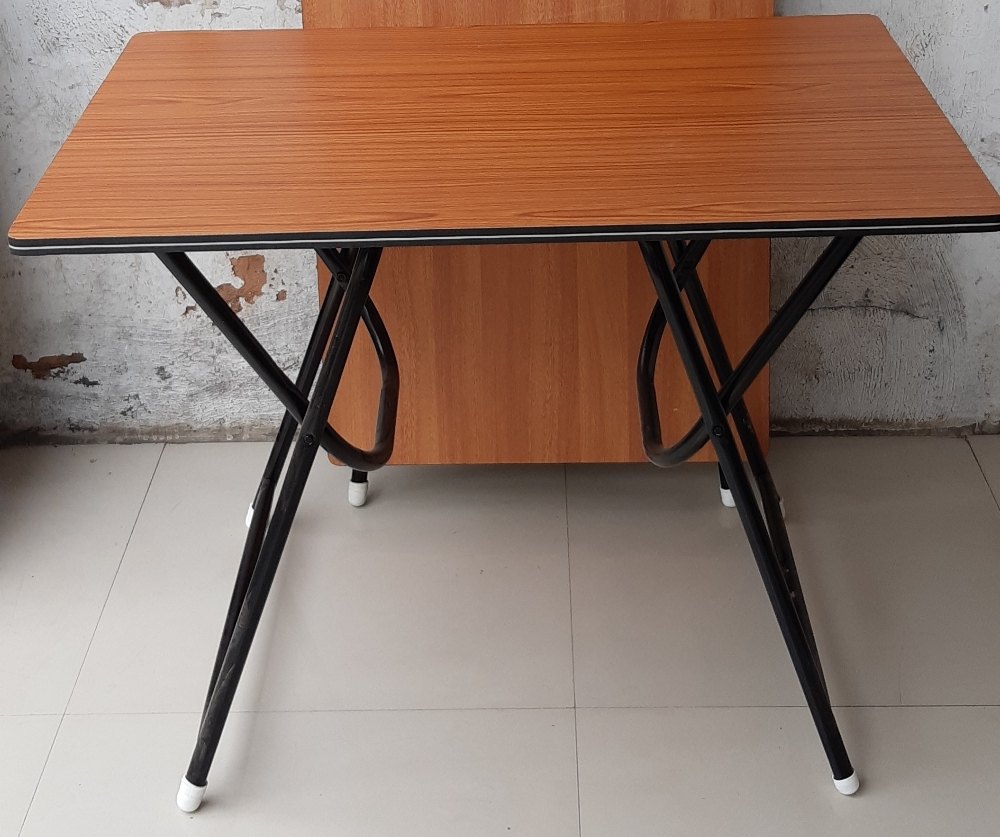
Protecting the Table Surface
Use Tablecloths or Covers
To protect your folding table during use, consider using a tablecloth or fitted cover. This not only preserves the surface from spills and heat damage but also allows you to change the look of the table for different occasions.
Surface Protectors for Craft and Work Projects
For activities that might harm the table surface, like painting or using hot glue guns, use a protective mat or thick cardboard. This barrier prevents scratches, burns, or other damages that can occur during such projects.
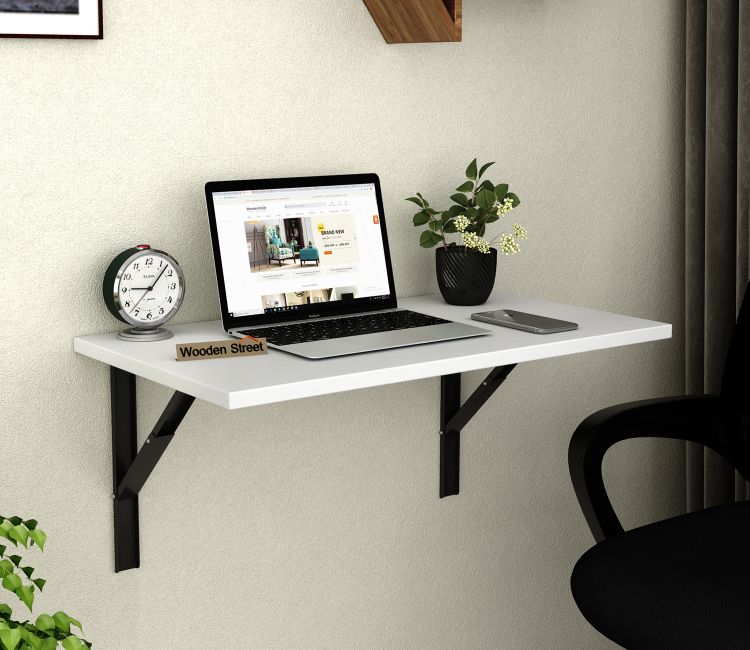
Seasonal Maintenance
Prep for Hot and Cold Weather
With each change of season, your folding table may need specific care. Heat can expand materials, while cold can cause them to contract, with both extremes possibly affecting the table’s stability and appearance. Before and after storing your table for the winter or summer months, give it a thorough inspection. Make sure that tabletops aren’t warping and that the legs and hinges are holding up well to seasonal temperature fluctuations.
Protection from Moisture and Pests
During the humid season or if you live in a moisture-prone area, ensure your folding table is safeguarded against mold, mildew, and bugs. Clean the table with a mildew-resistant cleaner and keep it off the ground to avoid pests. Never wrap your table in plastic, as condensation can form and cause damage; breathable covers are preferable.
When Repairs Are Needed
Assessing Damage for DIY Repairs
Not all damages to your folding table might require professional help. Assess the situation carefully; if it’s minor wear and tear, such as small scratches or loose screws, using a DIY approach with appropriate tools and materials – following guides or instructional videos – can save costs and extend your table’s life.
Seeking Professional Repairs
If the damage is extensive or if the table holds significant value – whether monetary or sentimental – seeking a professional’s assistance might be the best course of action. This might include deep structural repairs, major refinishing jobs, or replacing specialized components. A professional can ensure that the table is safe to use and that the repair will last.
The Benefits of Continual Care
Investing Time for Future Savings
Taking care of your folding table isn’t just about keeping it functional for the next event; it’s an investment in the table’s longevity. By dedicating time to maintenance and repairs, you avoid the higher costs and inconvenience of frequently replacing a poorly kept table.
Sustainability and Responsibility
In a world increasingly aware of the importance of sustainability, maintaining your folding table also carries environmental benefits. Rather than contributing to waste by disposing of tables that are simply in need of repair or maintenance, taking care of your furniture reduces your ecological footprint. It’s a small, individual step that contributes to a larger movement of responsible stewardship and sustainability.
Proper care and maintenance of your folding table can greatly extend its lifespan and keep it looking as good as new. By regularly cleaning, correctly storing, promptly dealing with any stains or scratches, keeping an eye on the hinges and legs, and protecting the surface from potential damage, your folding table can continue to serve you well for many activities to come. Remember, a little bit of care can go a long way in preserving the functionality and appearance of this flexible and useful piece of furniture.
